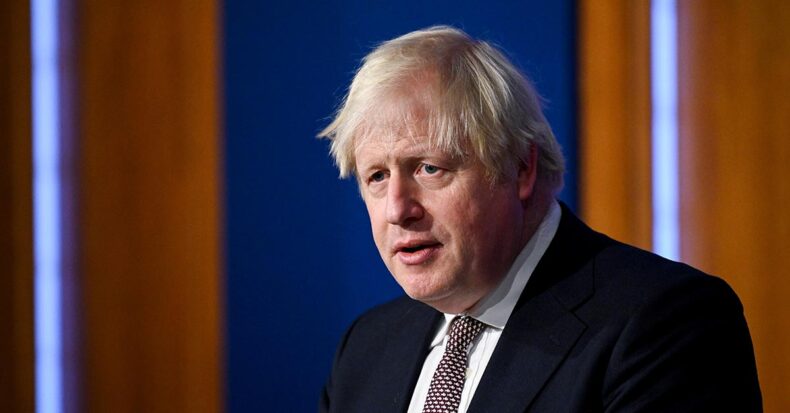Boris Johnson is travelling to Belfast to figure out the ramifications of the Brexit agreement he signed with Euopean Union. The Protocol imposes restrictions in goods passing from England, Scotland, and Wales to Northern Ireland, and there is still no wholly devolved government at Stormont.
So, what is he attempting to accomplish?
Consider it four-dimensional diplomacy, at the very least.
The following are the moving parts:
The Democratic Unionist Party opposes the Protocol because it separates Northern Ireland from the rest of the United Kingdom. They will not return to Stormont’s power-sharing government until things change.
“Look, Boris Johnson, you signed this international deal. Don’t attempt to unravel it now,’ says the European Union.
The White House and Washington political opinion, many of whom are opposed to the UK destroying the Protocol, and there are considerable differences of opinion inside the administration at Westminster, ranging from hawks who are enticed by a fight with Brussels to others who believe it would be harmful.
When some in the government refer to others as “knuckleheads,” you can bet there’s a heated internal discussion over how to handle this.
The prime minister claims that this is not about abolishing the Protocol but instead wanting to “make it work.”
Those who read the small print refer not only to Article 16, which empowers either party to suspend the Protocol, but also to Article 8, which discusses revisions to it or its ultimate replacement.
Expect this to come up when certain critics of the UK’s legislative plans argue it violates international law. It is acting within it will be the counter-argument.

Is it in bad faith?
Expect Foreign Secretary Liz Truss to lay out the idea for a new law on Tuesday, following the prime minister’s trip to Belfast.
According to my sources, it will be a “first principles declaration of purpose,” according to my sources.
In other words, this isn’t a mad dash to the finish line, slamming down new legislation for rapid adoption and execution.
It is envisaged that it would be a two-pronged strategy: continuing talking to the European Union while also having a backup plan.
But we know what many in Brussels believe: that the UK is attempting to breach a signed international agreement, that it is operating in bad faith, and that it cannot be trusted.
Some ministers are privately irritated that the EU is still attempting to penalise the UK for Brexit.
How come Brussels has been so magnificently open-minded and flexible in admitting so many people from outside the European Union—fleeing Ukraine—and yet they’re so rigid about a minor border on the island of Ireland?
However, the European Union maintains that the UK freely decided to sign this agreement and must live with the consequences.
Some in the government at Westminster believe that the prime minister’s visit today and the foreign secretary’s speech tomorrow will be enough to persuade the DUP to allow the selection of a speaker at Stormont.
To put it another way, politicians are now paid to be seen working
However, they would not be scrutinising a fully functional executive who is still in caretaker mode.
It would just be the beginning.
But it would be one that showed some traction.
Following that, the route map looks like this:
Talks with the European Union ensure that only Northern Ireland-related cargo crosses the Irish Sea without delay. It is referred to as a “green lane” by some.
Talks are continuing in Washington-don’t be shocked if another ministerial visit is scheduled shortly-to persuade an often sceptical audience that the UK.is acting responsibly.
Time is passing
The legislative process begins at Westminster, but not immediately.
The attention then shifts to a single question: what will the Democratic Unionist Party do?
Some are concerned that they will always find an issue in the Protocol to use as a pretext to reject a government with a Sinn Fein first minister.
For the time being, the DUP has a variety of views on this; for the time being, they are waiting to see what action, rather than words, is forthcoming.
They further claim that they were elected to Stormont based on an unwavering commitment to the Protocol, which they are currently carrying out.
A legal change in February provides Northern Ireland’s lawmakers six months to reach an agreement to restore full autonomy.
That clock has only recently begun to tick. After six months, the Northern Ireland secretary will have a 12-week opportunity to hold another poll.
The DUP will have to decide whether to accept whatever amendments to the Protocol the UK can achieve.
How much will they be rewarded for holding firm on their principles during the Protocol?
How much will they be chastised for preventing the return of an entirely autonomous government?
Because, despite all the commotion and international diplomacy, the way Northern Ireland is governed – or not-day today is at the heart of it all.
For example, Northern Ireland’s NHS is under more strain than anyplace else in the UK.
As things now stand, there is a caretaker executive who can do very little and a slew of newly-elected politicians who are paid by the public to accomplish very little.
The road from here to a fully functional devolved government in Northern Ireland and a protocol agreement that both the UK and the European Union are comfortable with might be long and winding.













